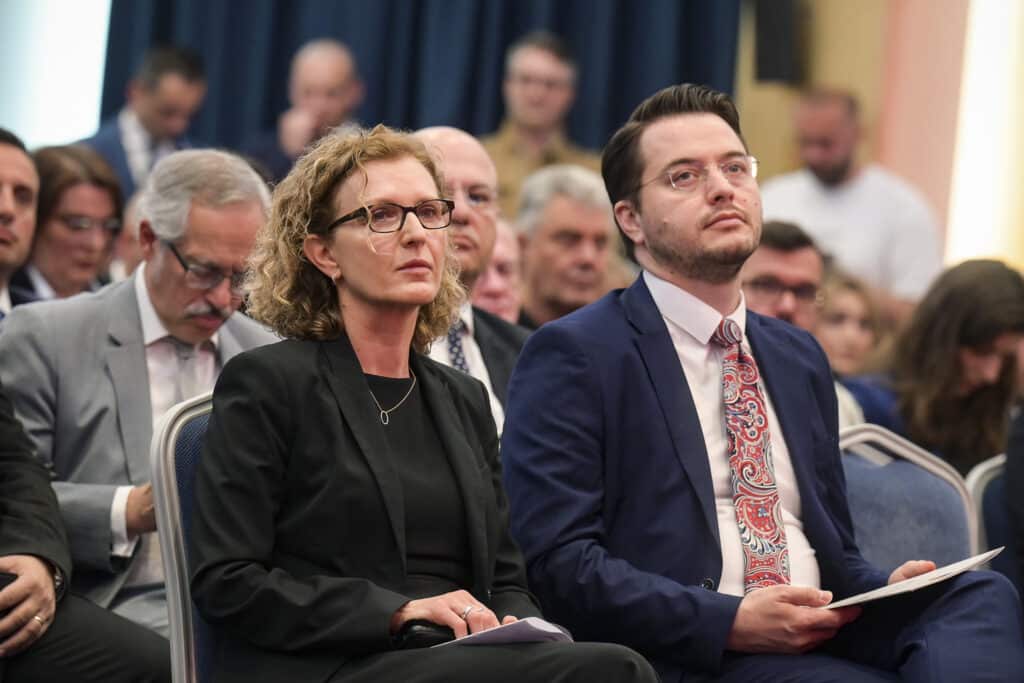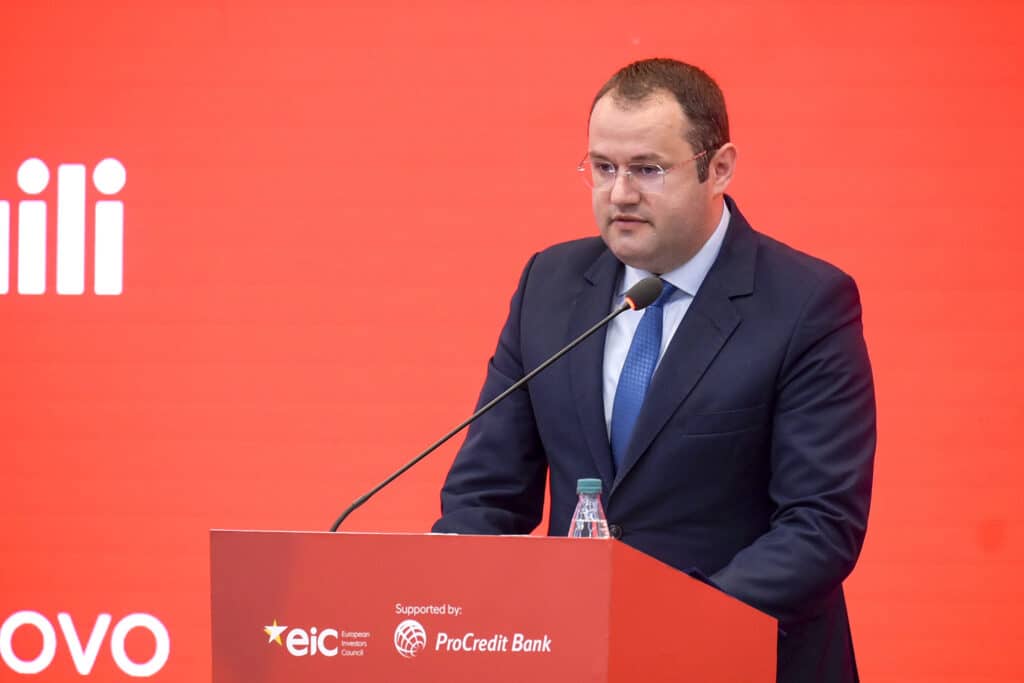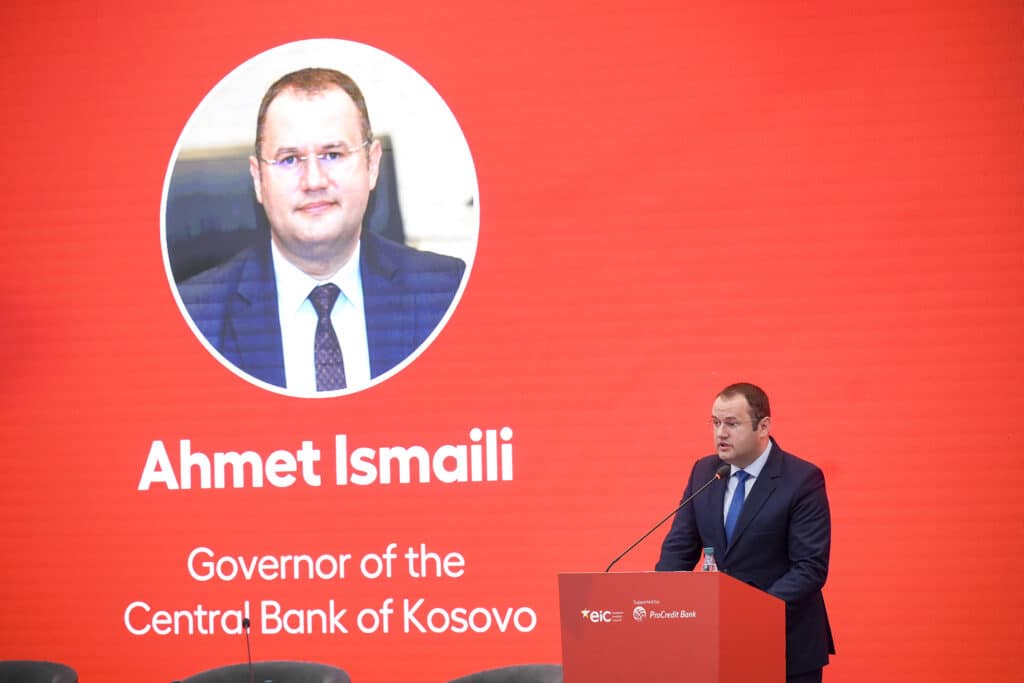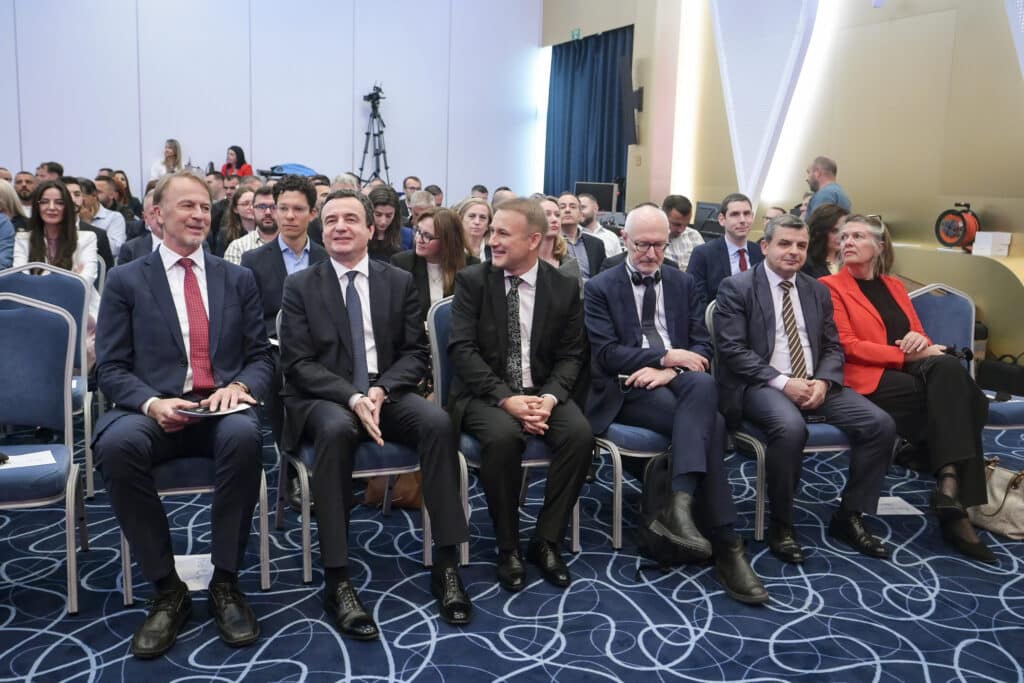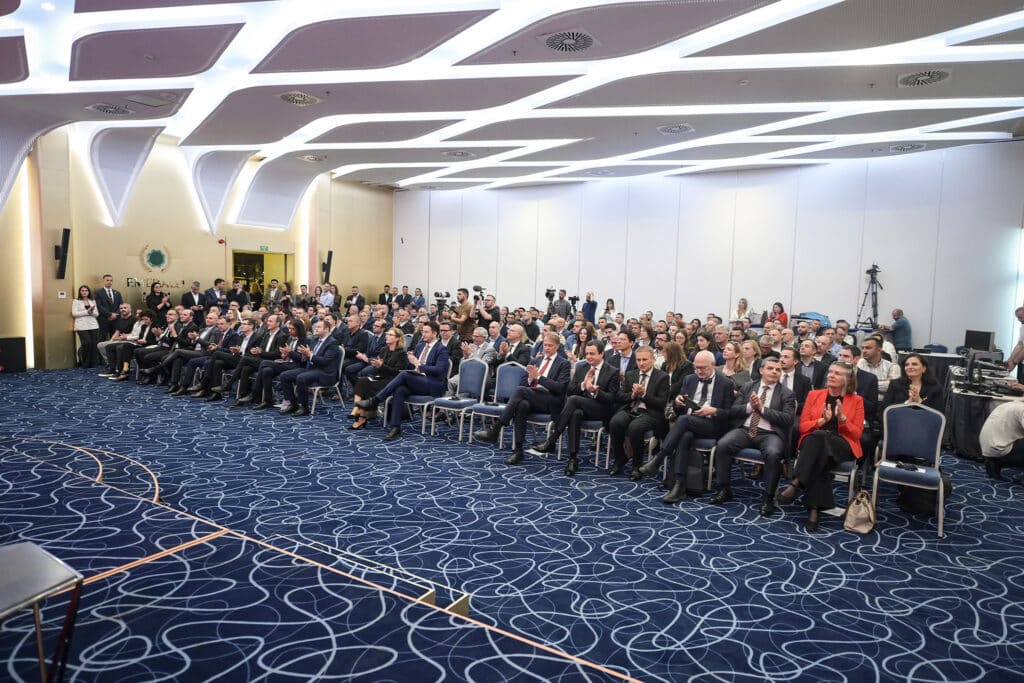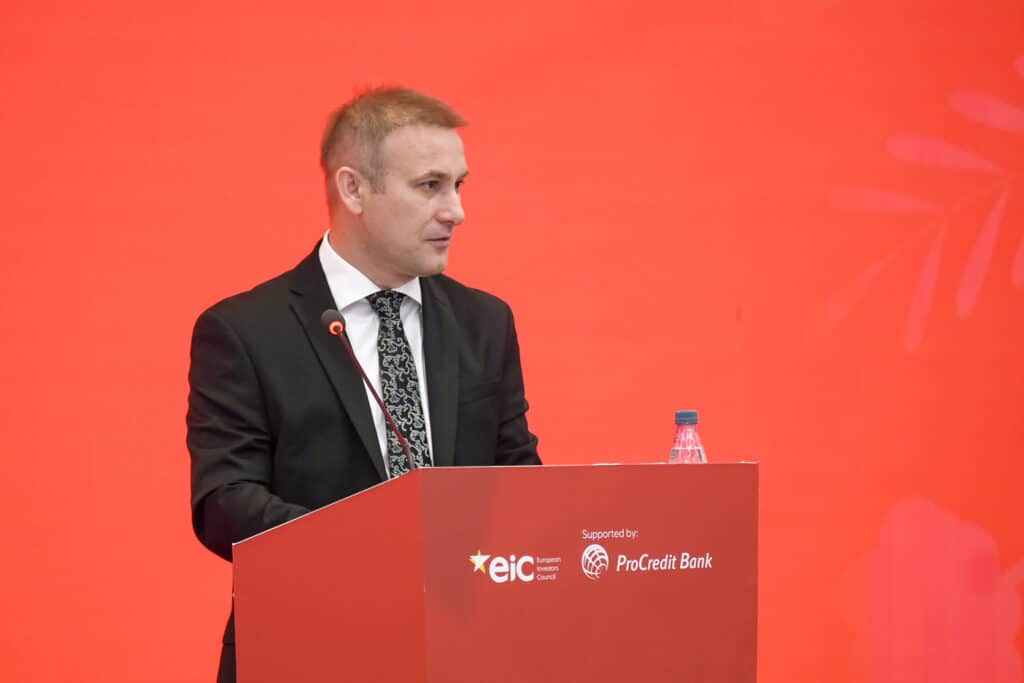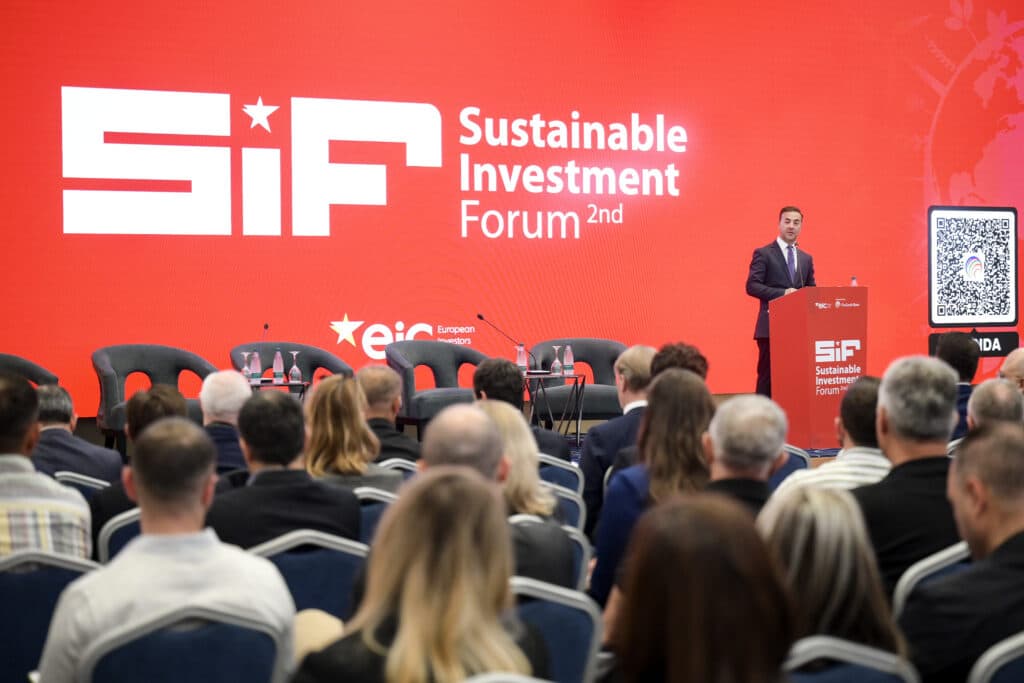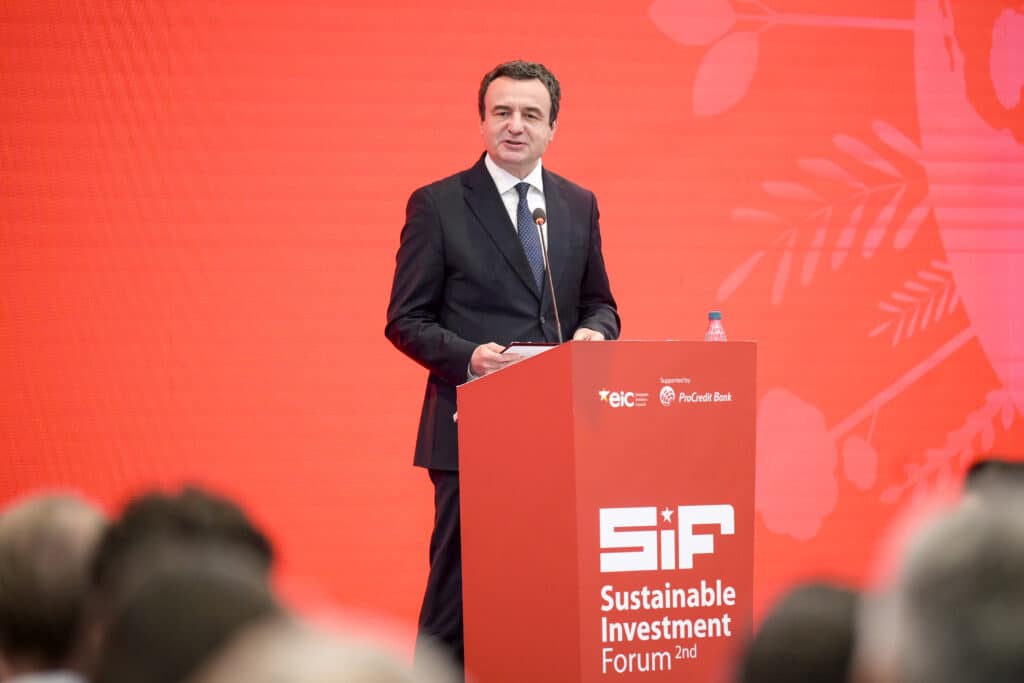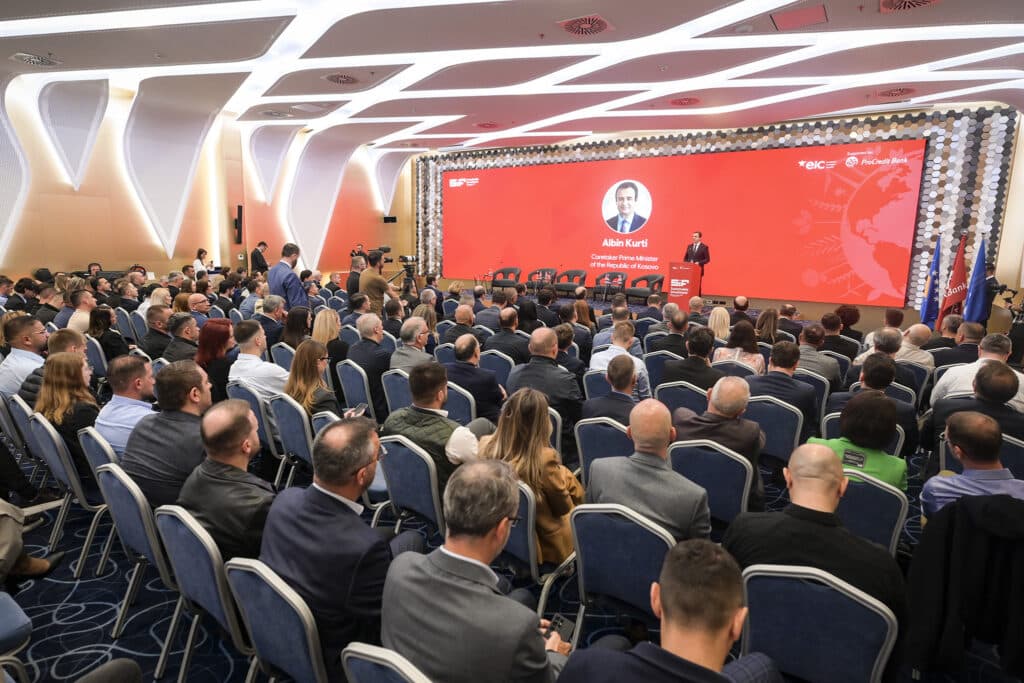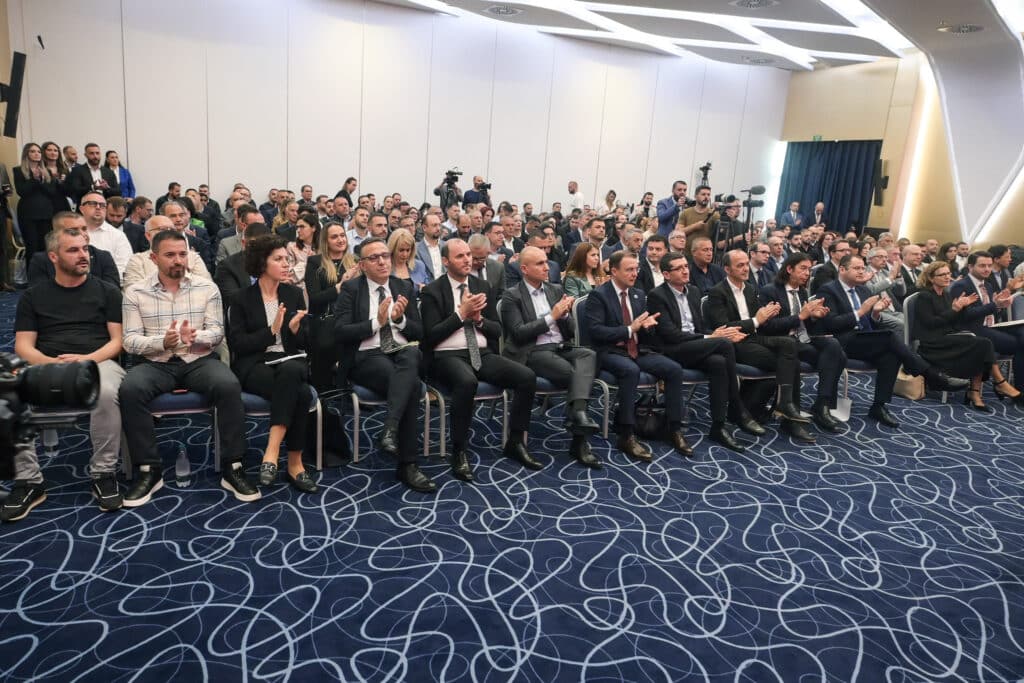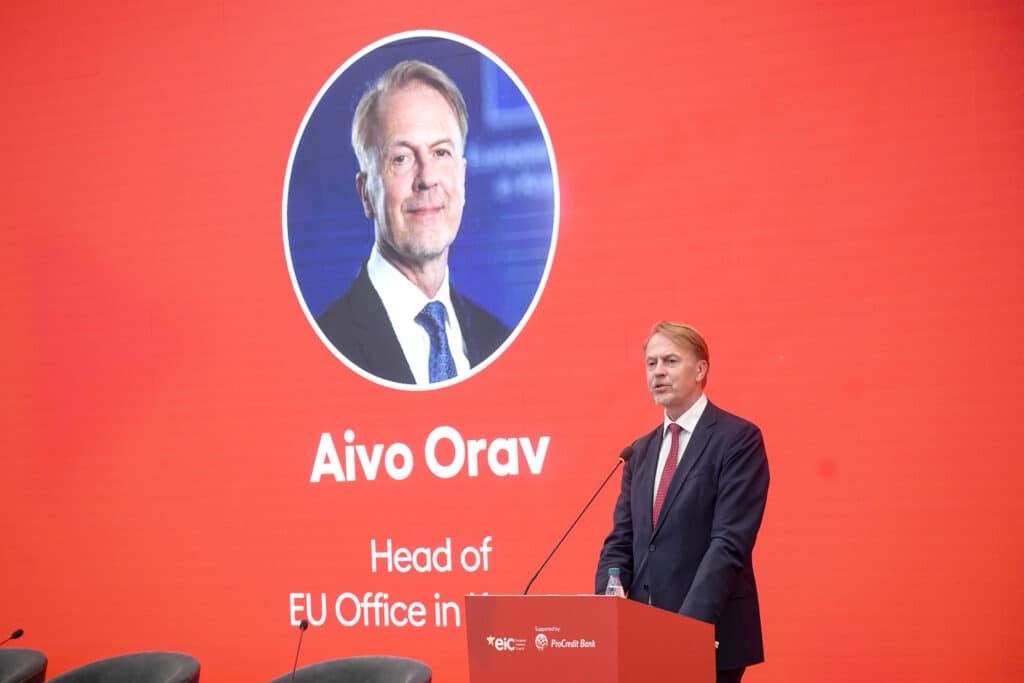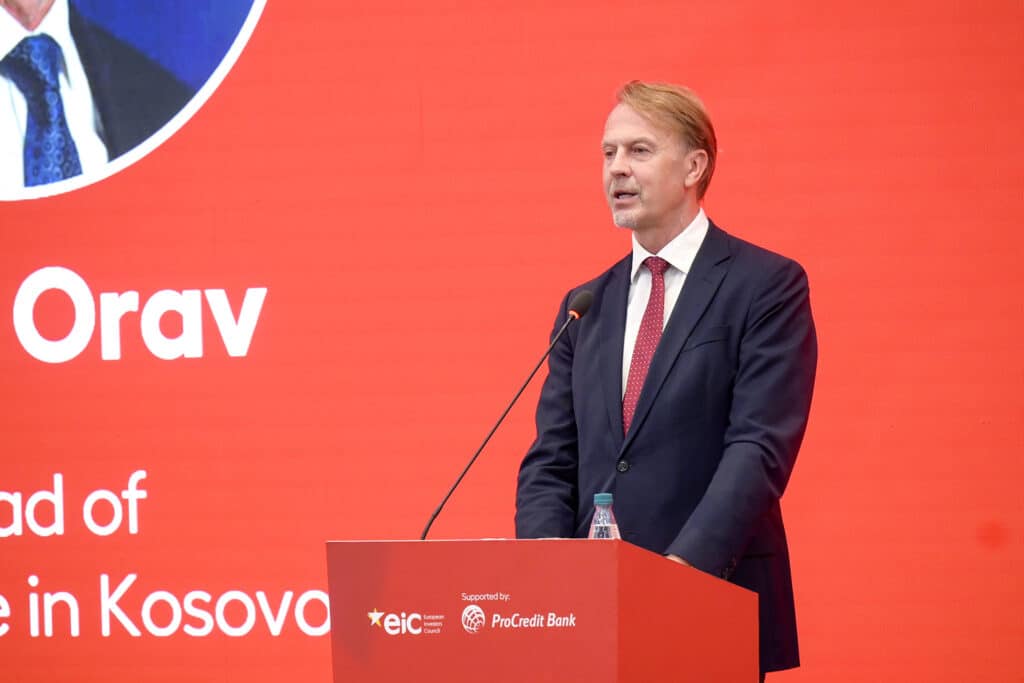Prishtinë, 22 maj 2025
Kryeministri në detyrë i Republikës së Kosovës, Albin Kurti, mori pjesë në hapjen e Forumit të II-të për Investime të Qëndrueshme, të organizuar në Prishtinë nga Këshilli i Investitorëve Evropian (EIC) dhe mbështetur nga ProCredit Bank. Në këtë vit, forumi u fokusua në temën “Dekarbonizimi dhe Net Zero: Fuqizimi i NVM-ve për një të Ardhme të Qëndrueshme”, derisa ofron një mundësi unike për të eksploruar rrugën e Kosovës drejt Net Zero dhe rolin kyç që luajnë Ndërmarrjet e Vogla dhe të Mesme (NVM).
Në adresimin e tij, Kryeministri Kurti theksoi përkushtimin e Qeverisë së Kosovës drejt tranzicionit të energjisë së ripërtëritshme dhe përfshirjes së bizneseve vendore.
“Ne jemi të vendosur të mbajmë të njëjtin hap me Evropën sa i përket agjendës së dekarbonizimit, jo pavarësisht nga kufizimet tona, por për shkak të tyre. Kjo është arsyeja pse ne kemi filluar rinovimin e termocentralit tonë kryesor me qymyr—përmirësimin e efikasitetit dhe uljen e emetimeve—duke përgatitur terrenin për një zhvendosje më të gjerë drejt energjisë së rinovueshme dhe infrastrukturës inteligjente”, tha kryeministri Kurti.
Ai njoftoi se për herë të parë pas katër dekadash që nga ndërtimi i termocentralit Kosova B, ka filluar modernizimi i madh i njësive ekzistuese dhe zgjerimi i kapaciteteve të gjenerimit, me investim prej 56.5 milionë euro, i financuar tërësisht nga KEK-u, pa kredi apo borxh publik. Si rezultat, pritet të ketë 15 megavat shtesë kapacitet prodhimi në vitin 2025, arritje të cilën kryeministri e cilësoi si hap të rëndësishëm drejt sigurisë energjetike dhe llogaridhënies publike.
Shtoi se kërkesa për energji është në rritje globalisht, dhe në Kosovë, vitet e fundit kemi qenë dëshmitarë të dyfishimit të eksporteve dhe qarkullimit të bizneseve të sektorit privat. Kryeministri theksoi se me prodhimtari më të lartë vjen një nevojë më e madhe për furnizim të sigurt dhe të qëndrueshëm me energji, ku e njëjta gjë vlen edhe për sektorin tonë në rritje të teknologjisë, i cili kërkon infrastrukturë moderne, të besueshme dhe të shkallëzuar të energjisë për të lulëzuar.
Në anën tjetër, u përmend roli kyç i Ndërmarrjeve të Vogla dhe të Mesme në ekonominë vendore, të cilat përbejnë mbi 90% të sektorit privat të Kosovës dhe për të cilat, Qeveria do të ofrojë mbështetje përmes lansimit të instrumenteve mbështetëse.
Në përmbyllje, ai tha se Kosova nuk do ta ecë këtë rrugë e vetme, por do të mbështetet në bashkëpunimin e partnerëve evropianë, fqinjëve rajonalë, diasporës dhe komunitetit ndërkombëtar zhvillimor: “Ne jemi të gatshëm të bëjmë detyrën tonë. Për ata që po ndërtojnë, prodhojnë dhe investojnë për një të ardhme të qëndrueshme: Kosova është pranë jush. Le të ecim përpara bashkë, përgjegjshëm dhe me vendosmëri”.
Fjala e plotë e kryeministrit Kurti:
Dear Emrush Ujkani, Executive director of EIC,
Dear Ahmet Ismajli, Governor of the Central Bank of Kosova,
Dear Visar Paçarada, CEO of ProCredit Bank,
Dear Aivo Orav, Head of the EU Office in Kosova,
Dear Mr. Jiri Plecity, Head of DG ENEST B2 unit at the European Commission,
Dear ambassadors,
Dear representatives of Kosova’s public institutions,
Dear members of the European Investors Council, private sector leaders, civil society,
representatives, academia and dear guests,
Welcome to Prishtina. Welcome to capital of a very thriving country which looks forward to bring together ever better, ever more democracy and development. We commend the European Investors Council, ProCredit Bank, and all partners involved for convening this forum at a time when sustainability has become more than a priority—it is a condition for long-term security, competitiveness, and resilience.
Today, Kosova is facing a dual challenge: to ensure energy security today, while preparing for a cleaner and more sustainable tomorrow. Our current reality is shaped by a continued reliance on coal. But our direction is clear—and our commitment is firm.
We are determined to keep pace with Europe’s decarbonization agenda, not despite our constraints, but because of them. That is why we have started refurbishing our main coal power plant—improving efficiency and lowering emissions—while preparing the ground for a broader shift toward renewable energy and smart infrastructure.
At KEK, our Public Energy Corporation, for the first time since the construction of the Kosova B power plant more than four decades ago, we have launched a major modernization of the existing units, alongside an expansion of generation capacity. This investment—56.5 million euros, financed entirely by KEK without loans or public debt—is a significant step toward energy security and public accountability. As a result, we expect an additional 15 megawatts of production capacity already in this year 2025 and much more to come in coming years.
This transition is not a goal in itself. It is not driven solely by environmental concerns—but also by economic necessity. Energy demand is rising globally, and in Kosova, we have witnessed a doubling of exports in recent years, while the business turn out in the last 5 years of our private sector has increased by 76%. With higher production comes a greater need for secure and stable energy supply. The same holds true for our growing technology sector, which requires modern, reliable, and scalable energy infrastructure to thrive.
As part of our legal obligations, energy regulators in Kosova have liberalized the electricity market this year. While this step aligns us with European energy norms, it has resulted in increased electricity costs—particularly for manufacturers.
As a government, we are responding with targeted support. Together with the Luxembourg Development Cooperation Agency (LuxDev), we are finalizing a new support scheme to help domestic producers adapt. This includes:
- Building insulation,
- Photovoltaic (solar) systems for electricity production,
- Solar thermal systems for water heating,
- Battery storage for solar PV systems, and
- Reactive power regulators to improve energy efficiency and reduce waste.
These investments mean lower energy costs, improved competitiveness, and greater resilience for every business that produces in Kosova.
Over 90% of Kosova’s private sector consists of Small and Medium Enterprises. These SMEs form the backbone of our economy, driving innovation, providing jobs, and building up community resilience.
Yet, they face real obstacles in the green transition—lack of access to capital, uncertainty in regulations, limited technical resources. This must change. And this forum is a step in that direction. We want our SMEs to see sustainability not as a compliance burden, but as a competitive edge. As European markets evolve, Kosova’s businesses must be ready to meet new standards and seize new opportunities, and we will be here to help you. That’s why we are committed to:
- Launching tailored support instruments such as the SME Net Zero Guide and CO₂ calculator,
- Then, introducing clearer policy incentives and roadmaps,
- Supporting innovation in clean technologies,
- And strengthening partnerships between the public and private sectors.
Kosova will not walk this path alone. We count on the collaboration of our European partners, our regional neighbors, our diaspora, and the international development community.
Today’s forum brings together knowledge, financing, and experience from across the region and beyond. We welcome lessons from Canada’s clean energy transition, and the expertise of those helping businesses navigate CBAM (Carbon Border Adjustment Mechanism), electricity liberalization, and ESG innovation.
Let me be clear: Kosova is ready to contribute—within its means and with the right partners—to a fair, secure, and future-oriented green transition in the Western Balkans.
The path ahead is complex—but necessary. We are ready to do our part. To those building, producing, and investing in a sustainable future: Kosova stands with you.
Let us move forward—together, responsibly, and with resolve.
Thank you!
